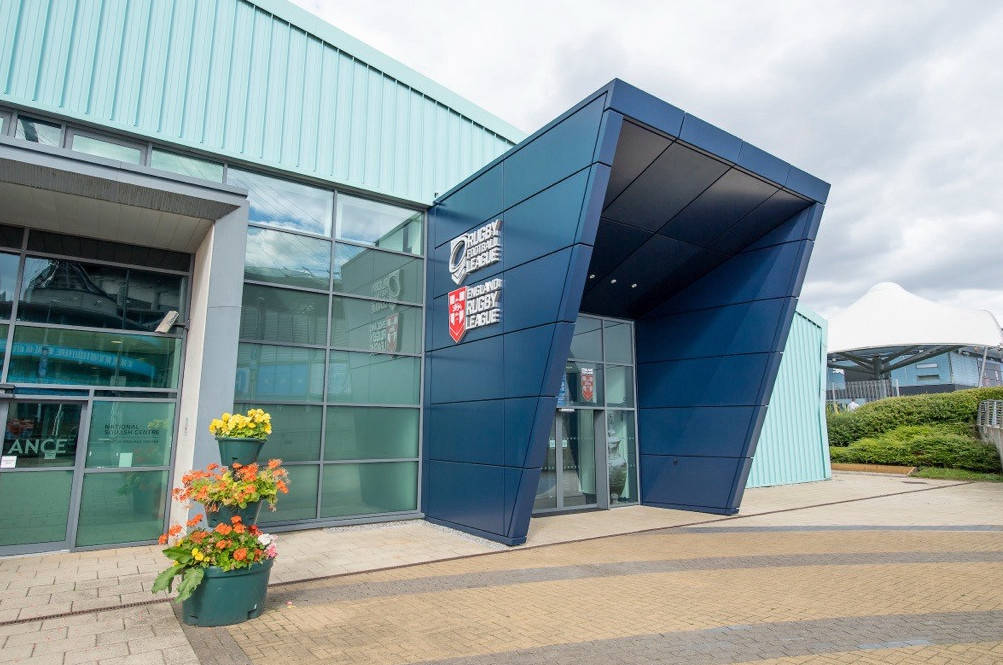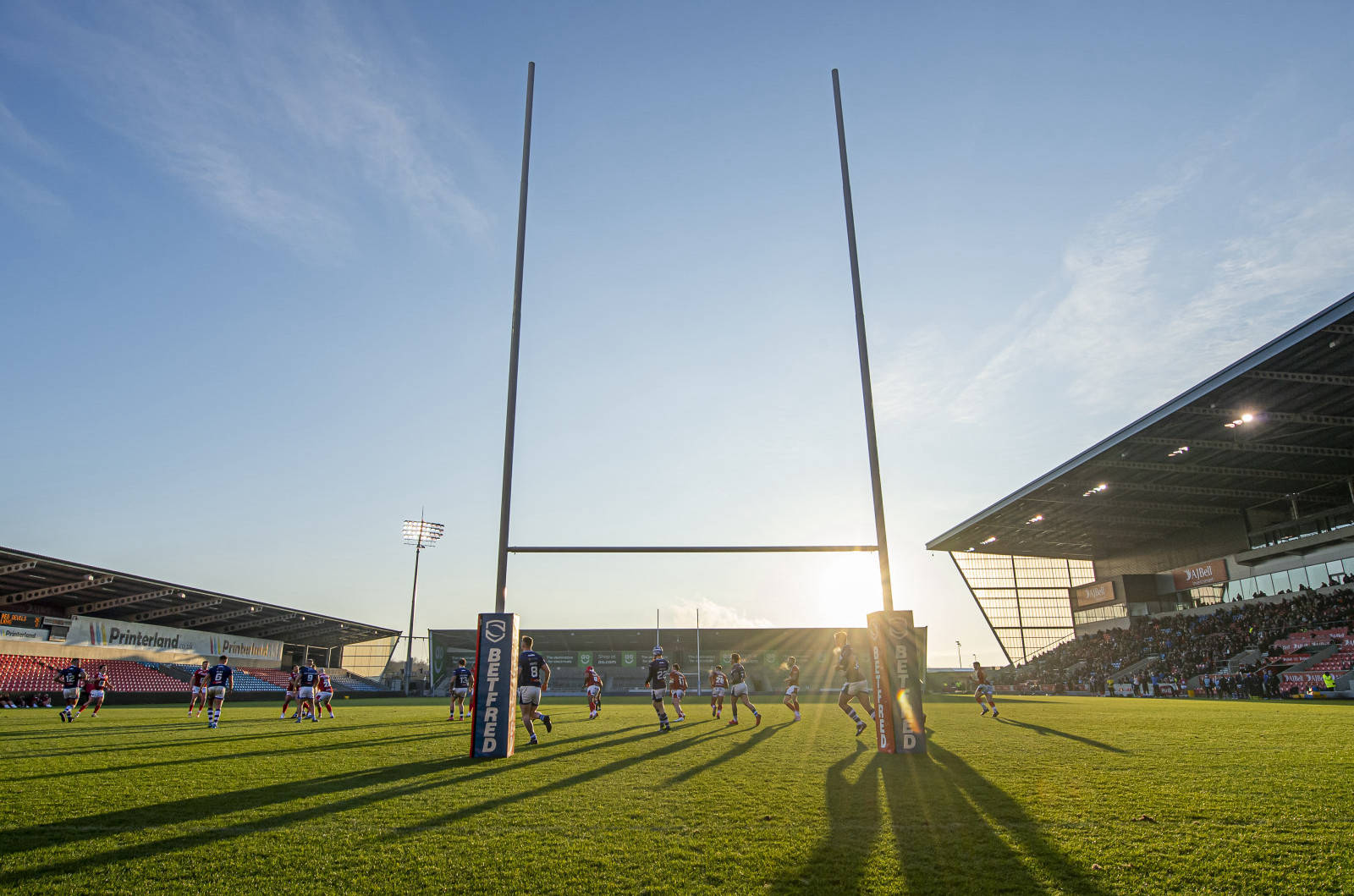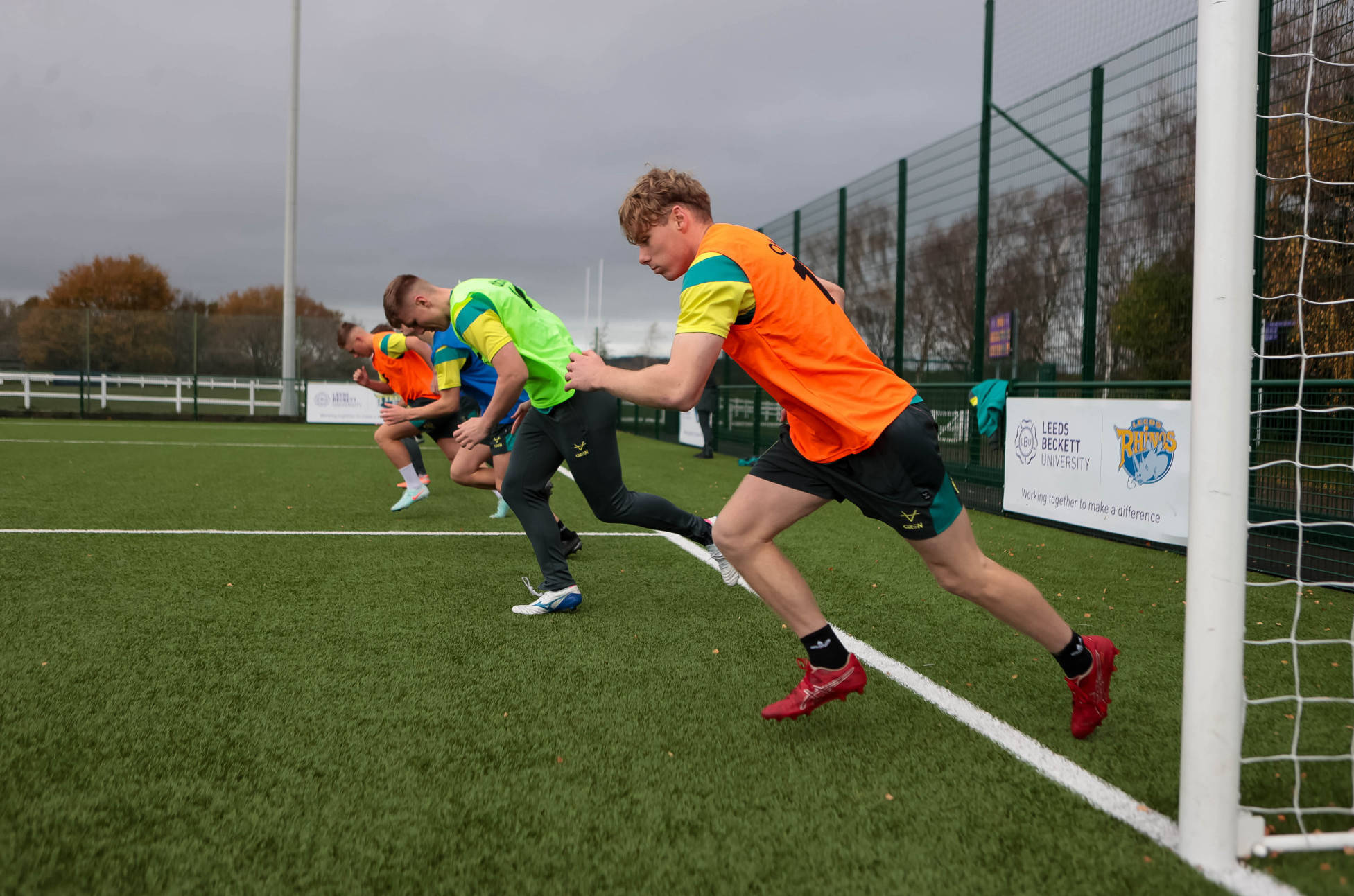
LBU hosts RFL’s annual Coaching, Performance and Medical Conference
The RFL held its annual Coaching, Performance and Medical Conference at Leeds Beckett University on September 8, as part of the long-running and wide-ranging partnership with LBU which has now been extended by a further three years.
Through the partnership – one of the most established of its kind in world sport - the RFL and Rugby League will continue to benefit from access to LBU’s world-class facilities, applied sports science services and ongoing collaborative research projects.
LBU will be the training base for England Women and the Men’s Pathway for the next three-years, and will host the RFL’s pitch-side emergency qualifications and other coaching, sports science and medical CPD courses for Rugby League.
More than 80 delegates from across elite Rugby League in the UK attended the 2025 Conference at LBU’s Carnegie School of Sport.
The Coaching session was delivered by Jon Pendlebury and Dr Michael Ashford, on planning for long-term performance, followed by a Performance and Medical talk from Dr Jack Hickey on preventing hamstring injuries.
The final speaker was Professor Ross Tucker, who spoke about the journey World Rugby have been on over the last decade to reduce head injuries across the rugby union globally. This was followed by a panel discussion of medical, coaching and performance experts relevant to Rugby League, with the key focus of ‘from measurement to management’.
As the RFL-LBU partnership continues, the team at LBU will continue to undertake research projects, which include;
- Injury surveillance across all levels of Rugby League, to reduce the risk of injuries
- The application of instrumented mouthguards, to quantify and reduced head acceleration events and concussion, as part of the TaCKLE (Tackle and Contact Kinematics, Load and Exposure) project
- The physical profiling of players, to support talent identification and development
- The match and training demands and characteristics of Super League as part of the RL-InSiGT (integrated study into game and training demands) project
Injury surveillance is established across all levels of the sport, and allows the RFL to identify the most common injuries, which then informs initiatives to reduce the risk to players.
Concussions remain the most common injury in men’s and women’s Super League and the men’s Academy, although the 2024 and 2025 season have seen a reduction across all levels of the game.
The second most common injuries are thigh, ankle and knee ligament injuries. The research team at LBU, the RFL, and staff from across Rugby League continue to work together to try and reduce the risk of injury for players.
The RFL and LBU started the TaCKLE project in 2021, which included a large-scale validation study of available instrumented mouthguards. LBU provide Prevent Biometrics custom-fit instrumented mouthguards to men’s and women’s Super League, and men’s Academy players. This allows the research team to monitor all head impacts and head acceleration events. This season also saw instrumented mouthguards used by some Wheelchair Rugby League players for the first time.
The data from instrumented mouthguards allow medical staff to identify players who have experienced a high magnitude impact or a number of large impacts across the season, to ensure they can be appropriately managed.
As part of the England Rugby League PaCE (Player and Coach Education) days, all Women’s Super League and men’s Academy players now visit LBU annually to have a comprehensive physical testing profile undertaken.
This project is in collaboration with Hawkins Dynamics, providing the team with access to advanced biomechanics equipment and insights. Clubs and players are provided with benchmark data, identifying strengths and areas for development.
The PaCE sessions are also an opportunity for Stuart Barrow (Head of Female Pathways) and Paul Anderson (Head of Male Pathways) to work with all the coaches and players across the game.
The demands of matches and training are routinely analysed to evaluate the impact of any rule changes, as well as evaluate player performance. All Super League players have Catapult Sports player-tracking devices, provided by LBU. These devices accurately measure the movements players are undertaking. The research team at LBU analyse these data, as part of the RL-InSiGT project, which provides key information to optimise player performance.
This league-wide project is one of the longest-standing projects of its kind in world sport, having started in 2018 with an agreement through to 2029. This allows Rugby League to gain unique insights into the sport.
Tony Sutton, the RFL Chief Executive who also chairs the RFL’s Brain Health Sub-Committee, said:
‘The RFL and Leeds Beckett University have a long-standing relationship, which continues to allow both organisations to benefit from each other’s expertise and knowledge. We saw how important the partnership was informing the 44 Brain Health changes the RFL made across the game for the 2024 season, and the positive effect this has had. The ongoing research allows us to make evidence-based policy decisions when required. We’re really pleased to extend the partnership not only covering research, but also the applied sports science services and access to facilities for our England teams, and also the broader sport.’
Peter Mackreth, Leeds Beckett University, Dean of the Carnegie School of Sport, added:
‘It’s important our University makes an impact, and the partnership with the RFL is a great example of what can be achieved when we work together. Rugby League is at the heart of the community we serve. We are really proud that our research continues to inform decisions made by the RFL, and also that we have the best Rugby League players in the country, if not the world, based on our campus for their training.’
Paul Anderson, RFL Head of Male Pathway:
‘Through the male pathway, we work with as many players and coaches as possible. The partnership with Leeds Beckett University allows us access to their performance, nutrition, and psychology staff, led by Dr Cameron Owen, as well as the excellent facilities. Having Leeds Beckett University as our home for the next three years is important to provide a world-class base for players coming through the system.’
Prof. Ben Jones Professor at Leeds Beckett University and RFL Head of Performance Science & Research:
‘The investment and commitment that both the RFL and Leeds Beckett University have made to this partnership allows it to thrive as one of the most established across world sport. We’ve been able to continue undertaking innovative studies to inform the RFL welfare and performance strategy, which has only been possible because both organisations work closely together. We’ve also been able to establish strong relationships with sports technology companies, such are Prevent Biometrics, Catapult Sports and Hawkins Dynamics, who provide us with access to scientifically validated data, which drive our insights.’
Stuart Barrow, RFL Head of Women’s Pathway:
‘The England Women’s programme has seen a radical change in professionalism over the last few years, and we see that in the quality of Women’s Super League each week. We’ve been based at Leeds Beckett University since 2021 and knowing we can continue to access these world-class facilities is important to provide players with a facility they deserve. The work Dr Sean Scantlebury leads across both the Women’s Super League and the England team ensures we have all the data and information at our fingertips to help all players, and the women’s game continue to grow, and reach its potential.’
Dr Dane Vishnubala, RFL Chief Medical Officer:
‘At the RFL, we’re committed to player welfare and the development of medical staff in the sport. The partnership with Leeds Beckett University is at the heart of this. The ongoing research informs our decision-making, and practice more broadly across Rugby League. Education is a key strategy at the RFL, and being able to access Leeds Beckett University’s world-class lecture theatres provides a perfect venue to deliver to the game. We’ve also been able to move our IMMOFP courses to Leeds Beckett University, which now provides a more function space for medical staff to undertake their emergency pitch side course, which is needed to work at the professional level of Rugby League.’




